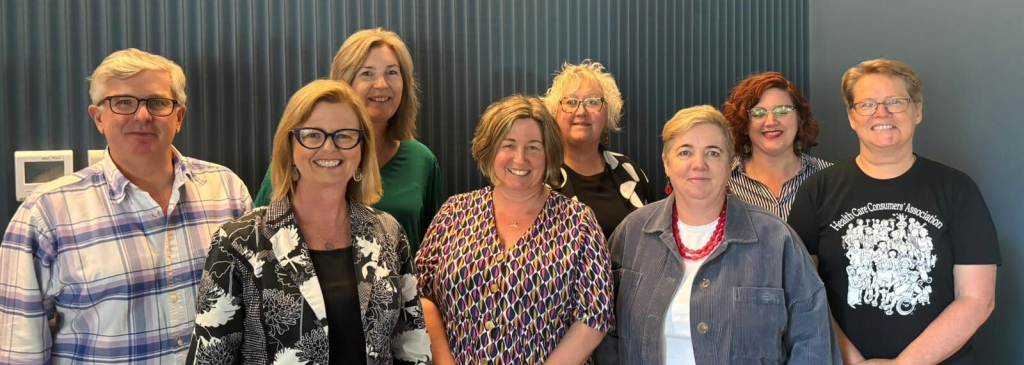Social prescribing – meeting the health needs that clinical care can’t address
This month I was invited to be part of a roundtable in Canberra looking at the topic of social prescribing. Social prescribing is where clinicians can refer people to non-clinical services that contribute to their health and wellbeing. Some of the most regularly used services are activities that contribute to people feeling connected and supported in their home and neighbourhood – like a community gardening group for example. 
At HCC we regularly hear from people about how their health is impacted by more than the health services they receive. Personally, I have followed the work of the pioneers of social prescribing in the UK – Mendip Health Connections – where volunteers from the local community are actively involved in strengthening the social fabric of that community that contributes to individual and community wellbeing.
In WA we have a thriving example of social prescribing in place in the shape of Compassionate Communities. These focus on ensuring that anyone facing a life limiting condition, or the end of life, is able to be cared for within and by community. You can find out more about this work at the website of this new organisation Compassionate Communities Australia https://compassionatecommunities.au/
While I’m not a huge fan of calling this kind of care social prescribing – with connotations of medicalising activity that doesn’t need to be medicalised – it’s clear there is momentum building behind the idea in Australia which I hope will increases access to the healing power of community for more people.
Sharing WA consumer and lived experience perspectives with the Federal Department of Health and Aged Care
While I was in Canberra I took the opportunity to meet with a couple of teams in the federal Health Department.
First up, I met with the team who are responsible for implementing the National Obesity Strategy, and the National Prevention Strategy. It was a really valuable meeting and I was able to share a number of lived experience and consumer stories from the work HCC has been doing on this topic since 2018.
I also got a chance to meet with the team at the health department responsible for what they call thin markets. This team are looking at options for delivering healthcare in areas where there isn’t enough naturally occurring provision of health services. It was really interesting to hear about the Integrated Care and Commissioning Trials that are bringing together health, aged care, Dept of Veterans Affairs, National Disability Insurance Agency and the National Indigenous Australians Agency to look at co-commissioning of services. One of the ten trial sites is in the Kimberley.
Strengthening relationships with other consumer groups across Australia
Also this month, I was in Adelaide to meet with all of the CEOs or the Executive Directors of the peak health consumer organisations in the other states and territories, as well as the national consumer peak, Consumers Health Forum. It was a really productive meeting where we explored opportunities for us to work together to maximise our collective impact.
It was great to share our collective vision for consumers leading change in healthcare, as well as to share our collective challenges: how sometimes consumers may be at the table, but it’s not yet translating into change; and the eternal challenge of meeting our big ambitions without big budgets.

from L-R: Anthony Brown, Health Consumers NSW; Alison Coughlan, Health Issues Centre; Bernadette Praske, Health Consumers Queensland; yours truly, HCC; Allison Willis, South Australia; Elizabeth Deveny, Consumers Health Forum; Ellen MacDonald, Health Consumers Tasmania; Darlene Cox, Health Care Consumers Association (ACT)
Solidarity for the consumer movement in Victoria
You may have read the sad news that our colleagues in Victoria – the Health Issues Centre – have had to take the unfortunate decision to close their doors and explore transitioning their operations to another agency. This is due to issues of financial sustainability, impacted by the withdrawal of government funding. We look forward to seeing what emerges from this process and stand ready to work with consumer leaders in that state when the time is right.
Clare Mullen, Executive Director, March 2024




